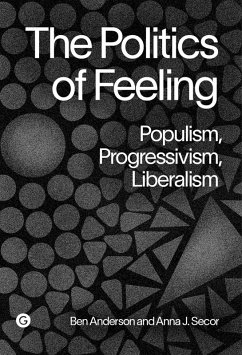How today's dominant political forms-right-wing populism, progressivism, and liberalism-offer differentiated responses to shared conditions of uncertainty. The Politics of Feeling argues that politics has become a matter of political feelings in an age of uncertainty. If the second half of the 20th century saw the defeat and exhaustion of fascism and socialism, what remained of ideological certainty in neoliberal democracies such as the UK and the US ran aground in the wake of the 2008 financial crisis. The Politics of Feeling is diagnostic of how the uncertainties of the post-2008 period have transformed the political arena and made the question of how people feel central to the formation of political affiliations and divisions. We identify three competing political forms in the US and the UK today: right-wing populism, progressivism, and contemporary liberalism. We argue that rather than naming coherent programs of political thought, these popular political forms are operating as arrangements or modes of attachment and political intensity. Each one suggests a different way of remembering the past, imagining the future, and making the present politically meaningful. Each one elevates some affective orientations over others and thereby etches differences of race, class, and gender within its structure. Tracing contemporary articulations of populism, progressivism and liberalism across US and UK contexts, we at once draw out commonalities and underline the way these forms diverge both between and within these societies. The Politics of Feeling is a critique of the living edge of politics: the emergent and shifting clusters of orientations and affects that continually work to differentiate political subjects, to intensify or alienate attachments and allegiances.
Dieser Download kann aus rechtlichen Gründen nur mit Rechnungsadresse in A, B, BG, CY, CZ, D, DK, EW, E, FIN, F, GR, HR, H, IRL, I, LT, L, LR, M, NL, PL, P, R, S, SLO, SK ausgeliefert werden.









